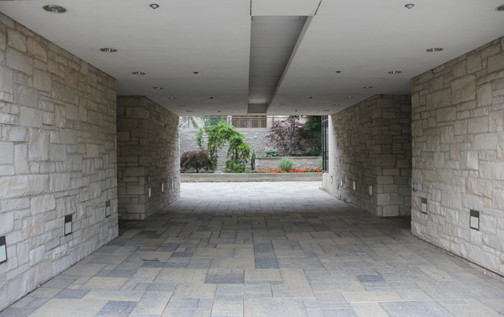Towards a total art ...
The poetry, drama, art, music, and musings of Mendi and Keith Obadike

Mendi and Keith Obadike, Four Electric Ghosts (1913 Press, 2009, 2011), 189 pp.; Big House/ Disclosure (1913 Press, 2014), 102 pp.—Despite the first, rather interesting, thirty-four pages of storytelling, Four Electric Ghosts is essentially a catalog of what appears to be an Afro-Futurist-inspired opera, at least in terms of its setting and design (disclosure: I’ve not had the opportunity to see any of the Obadikes' theatrical productions). The bulk of the book reprints the lyrics to songs, offers splashy photographs of the production and concludes with “celebrity” interviews (Cornel West and Laurie Anderson) concerning whether or not they believe in “ghosts.” It may be that Four Electric Ghosts is first and foremost a theatrical production whose specular and aural energy overcomes its semantic content (like great pop songs whose lyrics you can’t quite understand). Nevertheless, much more compelling to my taste is Big House/Disclosure, another multi-genre production. “Art” catalog is all over this one too, but unlike the self-conscious uplift (and often banal versifying) that plagues most of Four Electric Ghosts, Big House/Disclosure confronts the variegated, conflicted history of slavery and the African Diaspora with engaging poems, straight, wry, even bitter, “acting” directions-cum-manual instructions, and visual “demonstrations” of said directions/ instructions by the authors. Each poem appears on a verso page, facing a geometrical diagram (based on the writings of Nigerians secret societies, according to the authors) on a recto page. As in Donato Mancini’s Æthel (2007), text and image, semantic and asemic form, collide; the text is not a caption and the image is not a representation even though these top-bottom, dominant-dominated, relationships are exactly what they mimic. Straddling the fence-cum-meeting-place of a typical early 20th c. etiquette book (except here it isn’t about manners so much as the “proper” way to “do” history) and some prototypical Black Arts manifestos on the necessity of overturning and reconstructing history, Big House/ Disclosure undercuts the very possibility of what it enacts: historical recovery and/or burial as therapeutic balm, precursor to revolutionary praxis. Like Four Electric Ghosts, Big House/Disclosure concludes with interviews but this time the selected interviewees are “ordinary” citizens of Chicago. Just as compelling is the cd of avant-garde music, Ghost Dance, which accompanies the book. Because the Obadikes insist in their accompanying notes that all their projects are interconnected and self-reflexive, one might be tempted to succumb to literalism and take Ghost Dance as more appropriate for Four Electric Ghosts than Big House/ Disclosure. But the music makes perfect sense as an accompamying soundscape, if not soundtrack to Big House/Disclosure. Its multiple, varied textures and refusal of synthesis complements the complex, often irreconcilable, network of images and texts that comprise Big House/Disclosure. Big House/Disclosure has the visual, sonic and linguistic strength to stand on its own as a book, never mind as a stage production. It bristles with so much restless anger, love and energy, so much aesthetic élan, creativity and innovation, that one can only hope it is a precursor to more collaborations from the Obadikes. Here is a link to their Big House/Disclosure "multimedia suite" : http://www.mmlc.northwestern.edu/external/bighouse/main.html
Hunches, hedges, etc.